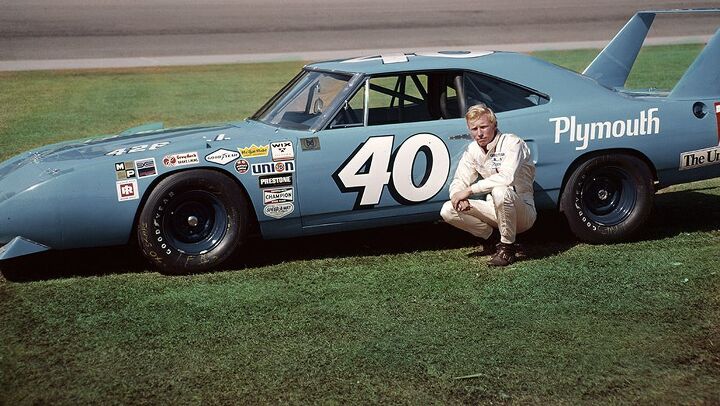Satisfied? All F1 Teams Have Been Cleared of Cost Cap Malfeasance

Despite evidence that numerous Formula One teams had broken the sport’s updated financial rules during the 2022 season, the Federation Internationale de l'Automobile (FIA) has formally announced that all ten have since operated under the cost cap limitations.
"The review has been an intensive and thorough process, beginning with a detailed analysis of the documentation submitted by the competitors," stated the FIA. "Additionally, there has been an extensive check of any non-F1 activities undertaken by the teams, which comprised multiple on-site visits to team facilities and careful auditing procedures to assess compliance with the Financial Regulations."
Criticism has not abated, however.
Like it or not, cheating is a fundamental component of motorsport. Race organizers frequently change the rules and teams habitually seek loopholes that will give them an edge. This often creates a gray area where it’s not entirely clear what qualifies as rule-breaking vs. rule exploitation.
A favored example of this is NASCAR banning the Dodge Daytona and Plymouth Superbird. Seeking an aerodynamic advantage on high-speed tracks, Chrysler realized there were no formal rules against fitting nose cones and massive rear spoilers to their racers, provided they did the same with the homologation cars sold to the public (this was back when NASCAR still required vehicles to be based on real production automobiles) to ensure compliance.
With the resulting Daytona and Superbird (below) dominating NASCAR events from 1969-1970, there was a lot of supposition about how Chrysler had broken the rules. But when it came out that there were no official restrictions on the matter, organizers simply banned the use of aero kits and restricted engine displacement to just 305 cubic inches. With Chrysler being forced into abandoning its aerodynamic advantage and banned from utilizing motors sized above 400 cubic inches, its dominance in NASCAR ended overnight.
Over the years, racing teams from all corners of motorsport have been trying to find ways of gaming the system. While this often results in exploiting bylaw blind spots, full-blown cheating is nearly as common. But it’s ultimately up to racing organizers and the sanctioning bodies to interpret when and how the rules are broken and this can lead to decisions that seem arbitrary or widespread criticism of engaging in favoritism.
Formula One has taken great strides to expand its popularity in recent years. Rules have been tweaked in a bid to encourage closer competition and there’s been a massive marketing effort that includes a Netflix documentary that’s covered every racing season since 2018 and broadcasting rights for American television networks. F1 has even abandoned the use of grid girls and started trying to present itself as environmentally conscious to minimize any bad publicity stemming from activist groups. As a byproduct, the changes became big news and drew even more media attention.
The above seems to have helped viewership immensely, with the sport seeing a surge of popularity in the United States that has only recently started showing signs of a plateau. However, some of Formula One’s historic criticisms still appear to be in play. Last year’s Abu Dhabi Grand Prix ended with the FIA deciding the results based on a shootout between Lewis Hamilton and Max Verstappen. However, many accused organizers of corruption due to how the matter was handled.
That season likewise resulted in the FIA looking into numerous teams accused of having exceeded the relatively new $142.2 million budget cap. Williams and Aston Martin were cited for minor penalties with Red Bull (long famous for spending big) getting busted for exceeding the limit by roughly $2 million and failing to file a tax deduction document that could have improved the situation.
The scandal wasn’t so much that some teams had broken the financial rules and gotten away with it. Despite some initial denial, Red Bull admitted to having screwed up and was forced into paying a $7 million fine while also losing some of its development time. But its driver (Max Verstappen) ultimately won the season, with Red Bull likewise taking home the constructor trophy for 2022 by a wide margin.
Now, the FIA is saying that all teams have been investigated and cleared of having exceeded the cost cap going into this year’s events. But fans (and even a few teams) are calling into question the regulatory body’s ability to effectively police spending. For starters, teams are already allowed to exclude their three highest-paid members from the total. This allows the biggest brands to hire the best drivers by offering tens of millions more per season. There are also lingering questions about how exactly the FIA can possibly oversee all aspects of team spending, what should be included in the $142.2 million seasonal budget cap, and what constitutes fair penalties for exceeding it.
For as much effort as Formula One has put into trying to level the playing field, we’re still seeing teams famous for having deep pockets (e.g. Red Bull, Ferrari, and Mercedes) outperforming the rest of the grid. These are old problems and something the FIA seemed eager to move away from. But one wonders if they’ve been effectively dealt with via the new spending caps, with there still being some concerns regarding how things were handled last year.
"The FIA also notes that the Financial Regulations are essential to the long-term financial stability of the sport and that they will continue to be developed and refined based on the findings of each review process both in terms of the regulations themselves, which are written and approved under the FIA Formula 1 governance process, and the way in which they are enforced and policed," the organization stated.
[Images: Formula1; NASCAR]
Become a TTAC insider. Get the latest news, features, TTAC takes, and everything else that gets to the truth about cars first by subscribing to our newsletter.

A staunch consumer advocate tracking industry trends and regulation. Before joining TTAC, Matt spent a decade working for marketing and research firms based in NYC. Clients included several of the world’s largest automakers, global tire brands, and aftermarket part suppliers. Dissatisfied with the corporate world and resentful of having to wear suits everyday, he pivoted to writing about cars. Since then, that man has become an ardent supporter of the right-to-repair movement, been interviewed on the auto industry by national radio broadcasts, driven more rental cars than anyone ever should, participated in amateur rallying events, and received the requisite minimum training as sanctioned by the SCCA. Handy with a wrench, Matt grew up surrounded by Detroit auto workers and managed to get a pizza delivery job before he was legally eligible. He later found himself driving box trucks through Manhattan, guaranteeing future sympathy for actual truckers. He continues to conduct research pertaining to the automotive sector as an independent contractor and has since moved back to his native Michigan, closer to where the cars are born. A contrarian, Matt claims to prefer understeer — stating that front and all-wheel drive vehicles cater best to his driving style.
More by Matt Posky
Latest Car Reviews
Read moreLatest Product Reviews
Read moreRecent Comments
- Peter Buying an EV from Toyota is like buying a Bible from Donald Trump. Don’t be surprised if some very important parts are left out.
- Sheila I have a 2016 Kia Sorento that just threw a rod out of the engine case. Filed a claim for new engine and was denied…..due to a loop hole that was included in the Class Action Engine Settlement so Hyundai and Kia would be able to deny a large percentage of cars with prematurely failed engines. It’s called the KSDS Improvement Campaign. Ever hear of such a thing? It’s not even a Recall, although they know these engines are very dangerous. As unknowing consumers load themselves and kids in them everyday. Are their any new Class Action Lawsuits that anyone knows of?
- Alan Well, it will take 30 years to fix Nissan up after the Renault Alliance reduced Nissan to a paltry mess.I think Nissan will eventually improve.
- Alan This will be overpriced for what it offers.I think the "Western" auto manufacturers rip off the consumer with the Thai and Chinese made vehicles.A Chinese made Model 3 in Australia is over $70k AUD(for 1995 $45k USD) which is far more expensive than a similar Chinesium EV of equal or better quality and loaded with goodies.Chinese pickups are $20k to $30k cheaper than Thai built pickups from Ford and the Japanese brands. Who's ripping who off?
- Alan Years ago Jack Baruth held a "competition" for a piece from the B&B on the oddest pickup story (or something like that). I think 5 people were awarded the prizes.I never received mine, something about being in Australia. If TTAC is global how do you offer prizes to those overseas or are we omitted on the sly from competing?In the end I lost significant respect for Baruth.



































Comments
Join the conversation
I blame Hunter Biden - the most dangerous man who was ever born on earth...ever....on earth...Biden.......Hunter...America....freedom...communists...Biden....can't stop.....believin in tomorrow
F1 is out for me. IMSA all the way